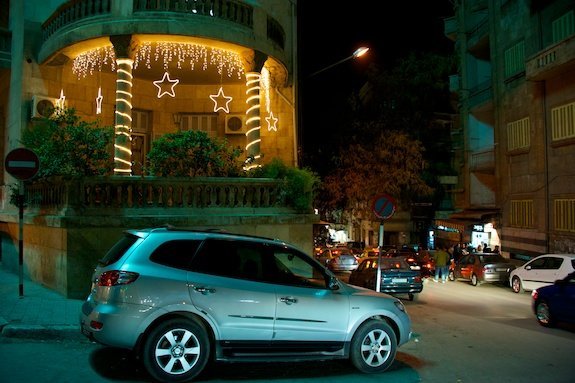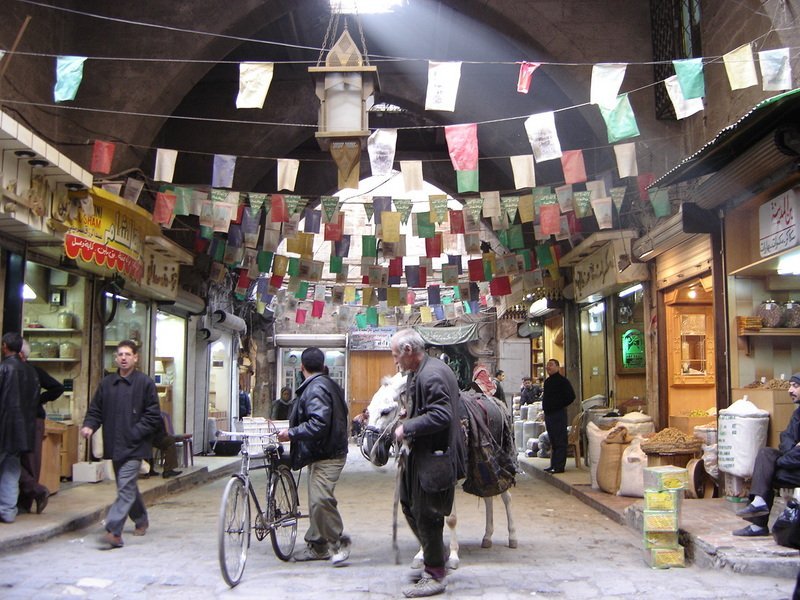Today falls between two important birthdays for Syrians.
Yesterday was Eid ul-Mawlid an-Nabawi – Prophet Muhammad’s birthday. There is no consensus among religious scholars about the permissibility of observing it, or indeed about which specific day it is, but it is often celebrated across the Islamic World on the 12th day of the third month of the lunar Hijri Calendar. Most Aleppian Muslims celebrate the day with passion. The Souq, now burned, used to be decorated with small, often green, banners bearing prayers and praise for the prophet. Mawlids – sufi chanting sessions – are held in mosques and other public and private places. At homes, people make and eat traditional desserts. My mum cooks mamouniyyeh, and my father would send me or one of my brothers to buy sheybiyat, sweet pastry stuffed with walnuts or pistachio.
Unlike with Easter, which is made a public holiday twice a year to accommodate for both Eastern and Western Churches, only one Christmas, December 25, is a public holiday in Syria. Christian-majority neighbourhoods, such as al-Aziziyeh and as-Suleimaniyeh, as well as Muslim-majority al-Muhafaza and al-Shahba’ are decorated with Christmas trees and lights. A massive tree used to be placed in Aleppo’s most central square, Sadallah al-Jabiri, which would become the scene of large celebrations on New Year’s Eve. For my family and many Muslim families who mark the Season, the tree is for New Year’s rather than Christmas. My father used to buy a pine tree that he would eventually plant in the small garden in front of our flat in al-Hamdaniyeh. We would spend New Year’s Eve with my aunt’s family at either their or our place. All types of cakes and hybrid Western – Middle Eastern desserts would be prepared, but I particularly loved the eclair my aunt always brought.
My family and a great many Syrians have forcibly become more international, and peace in the country might not change that immediately, or at all, but it can certainly bring us home together on holidays and other important occasions.
 The Aleppo Project
The Aleppo Project
